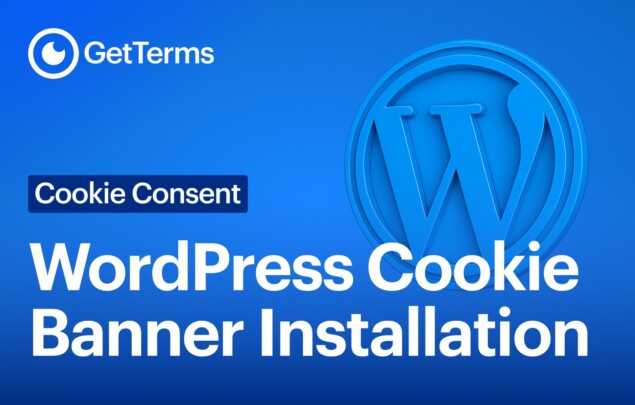How to Add a Cookie Banner to a WordPress Website
Read our guide on how to add a cookie banner to a WordPress website

Create a GDPR-ready Privacy Policy, Terms & Cookie Banner in under 5 minutes.

A Consent Management Platform (CMP) is the best way to manage user consent for data processing. If you’ve been asked to accept cookies, you’ve interacted with a small component of a CMP, but there’s so much more going on behind the scenes!
Here’s everything you need to know about CMPs, including why you should be using one in 2025.
Try the internet's easiest to use CMP
GetTerms Cookie Consent ManagerA Consent Management Platform (CMP) is a tool that enables businesses to collect, manage, and document user consent for data processing, ensuring compliance with privacy laws like GDPR. It helps protect users’ personal data by allowing them to control how their information is used, typically through a cookie banner or similar interface. CMPs also maintain records of consent decisions and ensure businesses respect users’ rights, such as blocking cookies until users opt in to data collection or withdrawing consent.
CMPs work by blocking non-essential cookies until a user consents to having their personal data collected. Once a user provides their consent preferences, the CMP logs their preferences anonymously in a secure data base, where it can later be reffered to if required.
At the centre of every CMP is a consent mechanism, usually, a cookie banner. The consent mechanism is responsible for informing visitors about the website’s use of cookies, and requesting that users either accept or reject all cookies, or in some cases, consent to specific categories of cookies (e.g., marketing, analytics).
Behind the scenes, the CMPs stores user consent preferences collected by the cookie banner in anonymous, audit-ready logs allowing users to update their preferences whenever they please.
The benefit of using a CMP is that it simplifies an otherwise complicated and time-consuming component of running an online business: collecting valuable data without breaking the privacy laws that protect consumers. While every business is different, their reasons for implementing a Consent Management Platform are often quite similar.
Without a CMP, the expense of managing consent would be crippling for most businesses, requiring enormous investment into web development and legal fees.
A Consent Management Platform (CMP) handles everything from the collection of user consent, through to the storage of user consent. The core responsibilities of a CMP are:
Essentially, once installed correctly, a business should be able to get back to their regular operations without worrying about data privacy compliance.

Any organization that collects personal data from users in regions covered by privacy laws like GDPR or CCPA will need to collect and manage consent and the simplest and most cost-effective solution for this is a CMP. With that in mind, if your website or app uses cookies, tracks user behaviour, or processes personal information, you’ll want to implement a CMP, particularly if you’re operating in multiple jurisdictions, handling sensitive data, or using third-party marketing tools.
Personal data processing requires clear and explicit consent from users before any collection or handling can begin. This means getting permission before gathering information like names, email addresses, or any details that could identify someone. Similarly, websites must obtain consent before using non-essential cookies – e.g. tracking cookies that track browsing habits, preferences, or serve targeted advertisements.
The only time you consent may not be required, is when using essential cookies that enable your websites basic functions to work properly. These include cookies that remember what’s in a shopping cart for the duration of a session, keep users logged in for the session, or protect user accounts from unauthorized access. Additionally, when collecting data that is truly anonymous – meaning there’s no way to trace it back to identify a specific person – consent isn’t needed. This might include general statistics such as the number of website visits, page views or session duration.